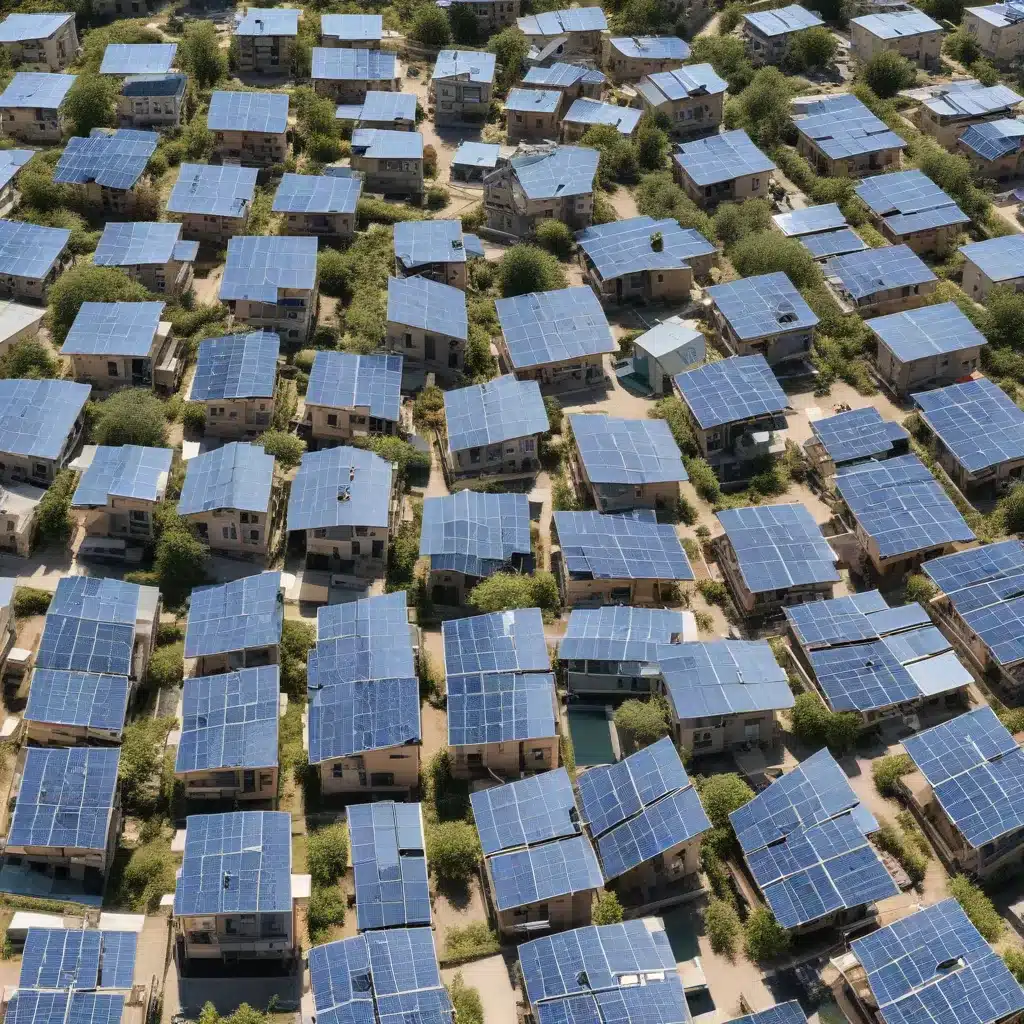
As the global energy landscape undergoes a transformative shift, communities across Europe are embracing a new paradigm—one that empowers them to take charge of their energy destiny. This paradigm is known as decentralized energy, and it is poised to revolutionize the way we generate, distribute, and consume power.
Renewable Energy Sources Paving the Way
At the heart of this energy revolution are renewable energy sources, such as solar photovoltaic (PV) and wind power. These clean, sustainable alternatives to traditional fossil fuels are becoming increasingly cost-competitive and accessible, making them the cornerstones of decentralized energy systems. By harnessing the power of the sun and wind, communities can generate their own electricity, reducing their reliance on centralized grids and the associated risks of transmission losses and disruptions.
Energy Storage Solutions Enhancing Resilience
Complementing the rise of renewable energy sources are advancements in energy storage technologies. Innovations in battery storage, hydrogen fuel cells, and thermal energy storage are enabling communities to store excess energy generated from renewable sources, ensuring a reliable and resilient power supply even during periods of low generation. These storage solutions empower communities to become self-sufficient, capable of balancing their own energy needs and contributing to the overall stability of the grid.
Distributed Generation Fostering Democratization
Decentralized energy systems are characterized by distributed generation, where energy is produced and consumed locally, rather than relying on large, centralized power plants. This approach allows for the integration of various Distributed Energy Resources (DERs), such as rooftop solar panels, small-scale wind turbines, and combined heat and power (CHP) systems. By empowering individuals, businesses, and communities to become active participants in the energy ecosystem, decentralized energy fosters a more democratic and inclusive energy landscape.
Empowering Local Communities
The transition to decentralized energy systems is not just about technological advancements; it is also about empowering local communities to take control of their energy future.
Community-Driven Initiatives
Across Europe, we are witnessing the emergence of community-driven energy initiatives, where residents collaborate to develop and manage their own renewable energy resources. In countries like Germany, for example, energy cooperatives have been instrumental in driving the adoption of solar PV and wind power, enabling communities to collectively invest in and benefit from their local energy generation.
Microgrid Deployment
Another example of community empowerment is the deployment of microgrids—self-sufficient energy systems that can operate independently from the main grid. Microgrids allow communities to tailor their energy solutions to their specific needs, ensuring a reliable and sustainable power supply during grid disruptions or extreme weather events. The European Future Energy Forum has highlighted several successful microgrid projects across Europe, showcasing their ability to enhance resilience and foster local energy independence.
Energy Cooperatives
Energy cooperatives represent a particularly promising model for community-driven decentralized energy systems. These cooperatives enable residents to collectively invest in and manage renewable energy resources, such as solar and wind farms. By pooling their resources and expertise, communities can overcome the financial and technical barriers that often hinder individual efforts, unlocking the benefits of clean, locally-produced energy.
Sustainable Energy Transition
As Europe accelerates its transition towards a more sustainable energy future, decentralized energy systems have emerged as a crucial component of this transformation.
Policy and Regulatory Frameworks
Governments across Europe have responded by implementing policy and regulatory frameworks that support the development of decentralized energy solutions. Initiatives such as feed-in tariffs, net metering, and renewable energy certificates have provided the necessary incentives and frameworks to encourage the adoption of distributed renewable energy generation.
Technological Advancements
Alongside policy changes, the energy sector has witnessed remarkable technological advancements that have further enabled the rise of decentralized energy systems. Improvements in solar PV efficiency, wind turbine design, and energy storage technologies have made these solutions more cost-effective and accessible to communities, accelerating their deployment.
Overcoming Challenges
While the transition to decentralized energy systems presents numerous opportunities, it also comes with its own set of challenges. Issues such as regulatory complexity, financial barriers, and technical integration with existing grid infrastructure must be addressed through collaborative efforts between policymakers, industry stakeholders, and communities. As these challenges are overcome, the path towards a more sustainable and resilient energy future becomes clearer.
Benefits of Decentralized Energy
The benefits of decentralized energy systems extend far beyond just technological advancements. These systems offer a range of advantages that have the potential to transform communities and the broader energy landscape.
Improved Resilience
Decentralized energy systems, particularly microgrids, have demonstrated their ability to enhance energy resilience. By diversifying energy sources and enabling local control, these systems can better withstand disruptions, ensuring a continuous supply of electricity even during grid failures or extreme weather events.
Environmental Sustainability
The shift towards decentralized energy, powered by renewable sources, plays a crucial role in the fight against climate change. By reducing reliance on fossil fuels and enabling the integration of clean energy, decentralized systems contribute to significant reductions in greenhouse gas emissions and improved local air quality, benefiting both the environment and public health.
Economic Opportunities
Decentralized energy systems create new economic opportunities for communities. The deployment and operation of these systems generate local jobs and entrepreneurial activities, fostering community-level economic development. Moreover, the potential for energy cost savings and revenue generation through local energy trading can provide a financial boost to households and businesses.
As Europe continues to navigate the energy transition, the rise of decentralized energy systems holds the promise of a more sustainable, resilient, and equitable energy future. By empowering communities to take control of their energy resources, these innovative solutions are poised to play a pivotal role in shaping the continent’s energy landscape for generations to come.







